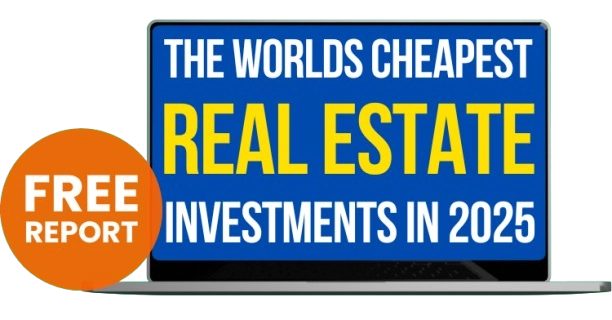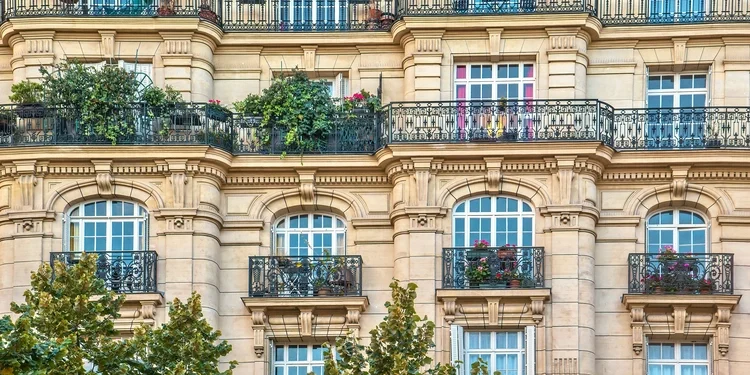First, you aren’t buying real estate in most of the world today for capital appreciation.
It’s possible in select markets, but you should think of it as the gravy. In today’s global climate, you’re buying for yield, and for cash flow, meaning two kinds of property investments are of greatest interest right now—rental properties and dividend-producing agricultural plays.
When shopping for a rental investment overseas, target markets with tourist track records. In Paris this week, I’m reminded that this city is a top example, for it is a destination that will attract visitors even when times are tough. As long as there is money in the world, people will come to Paris to spend it.
Second, before making any rental investment, have an idea in mind of who your end-buyer would be.
This helps you to put the acquisition into perspective. The French leaseback, for example, is a great hassle-free rental investment in one of the world’s top tourist destinations. But it’s an investment. You aren’t going to live in a leaseback unit (no more than maybe several weeks a year)… and neither is anyone else. So your buyer, when you’re ready to exit, will have to be another investor.
On one hand, this limits your potential universe for selling on. On the other, investors are always going to be looking for ways to own French rental units.
Meantime, an apartment in Paris (or Buenos Aires, Medellin, Panama City, or Istanbul, to name some of my favorite current markets for this kind of investment) could, theoretically, eventually be resold to another investor… or to an end-user, someone interested in residing in the city.
Third, consider inventory supply and demand.
The Costa del Sol, for example, is ridiculously over-supplied. So, even though prices in that part of the world have collapsed over the past few years, I wouldn’t recommend it as a place to shop for a rental investment… though other parts of Spain’s coast are a buy right now.
Start Your New Life Today, Overseas
The key consideration, though, when looking to buy-to-let overseas is the rental manager.
You can act as your own rental manager, but I don’t advise it. If you’re not residing physically in the same place as the rental unit, I say definitely don’t try it. I’ve had more than 20 years of investor-landlord experience in more than a dozen countries. This isn’t something you want to take on yourself unless you’re prepared to make it your full-time occupation.
Engage someone who knows the market, who has marketing infrastructure in place, who has developed a client list you can leverage, and who can show you proven management systems (for reservations, for inventory control, for reporting, etc.).
Our first apartment investment in Paris rented extraordinarily well the first year. However, the rental manager spoke no English and was perpetually late with replying. So we switched to another manager, an American. Yes, he spoke English, but he, too, was perpetually late with replying… and, more to the point, he got us less than half the occupancy we’d enjoyed the year before, though the market was stronger and tourism figures were up.
When you make a rental investment, you’re choosing, first, a market; next, a rental manager; and, finally, a property. Before you make a particular buy decision, seek advice from the rental management agency you’re planning to work with. What’s more rentable? Two bedrooms… or one?
What matters most to would-be renters? Location, of course… but other, less obvious things can be critical. In Paris, you’ll struggle to make a decent return off a fifth-floor rental in an apartment building with no elevator.
I don’t recommend long-term unless you’re well familiar with the market and have a rental manager who really knows what he or she is doing. In many markets, it can be difficult to evict a long-standing renter.
When we made the decision to rent our Paris apartment long-term, we interviewed potential rental managers. The one we chose impressed us because she made a point of telling us, with a voice of long experience, to whom she would not rent.
“We won’t rent to such-and-such people, because they throw wild parties,” she told us.
“We won’t rent to so-and-so people, because they don’t respect other peoples’ property.”
Etc.
In some contexts, her positions might be termed discrimination. We saw them as risk management.
A global portfolio of rental properties (or even a single well-selected rental apartment) isn’t a strategy for getting rich quick, but it is one of the best options available today for solid, reliable returns with the potential for capital appreciation over time and immediate diversification, which should be an overriding agenda of every investor today.
What level of yield should you expect?
A minimum of 5% per year net. Buy under-market or identify a market with some particular distortion at work (to do with inventory supply and demand, occupancy rates, seasonality, room rates, etc.), and you can net 10% per year or more.
Leverage can expand your return considerably. Lief and I are netting (after all associated costs and expenses) more than 20% a year right now, cash on cash, from a leveraged rental we own in Panama City.
Until next time,

Kathleen Peddicord
Founding Publisher, Overseas Opportunity Letter










